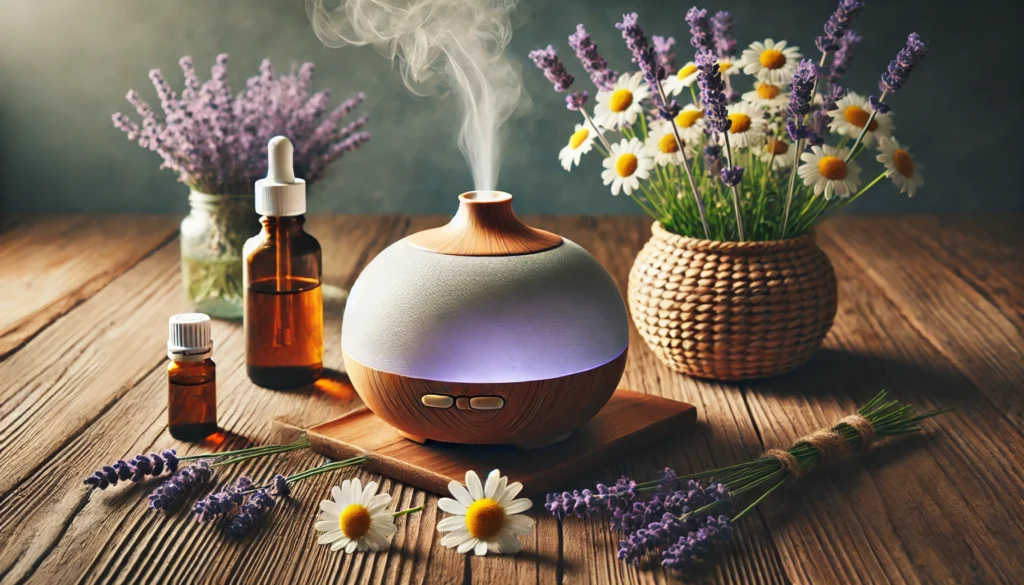Duloxetine, widely recognized by the brand name Cymbalta, is a prominent medication utilized for treating depression, anxiety, and nerve pain. Its efficacy is well-documented, yet not everyone finds it suitable due to potential side effects or a personal inclination towards natural remedies. Fortunately, for those seeking over-the-counter options, there are natural alternatives that can serve as effective substitutes for duloxetine. This article delves into various natural alternatives, their benefits, and how they can act as substitutes for duloxetine.
You may also like: Top Supplements to Alleviate Anxiety Naturally

Understanding Duloxetine and Its Applications
Duloxetine belongs to a class of medications known as serotonin-norepinephrine reuptake inhibitors (SNRIs). Its primary function involves increasing the levels of serotonin and norepinephrine, neurotransmitters crucial for mood regulation and pain perception, in the brain. These properties make duloxetine particularly effective for treating major depressive disorder, generalized anxiety disorder, fibromyalgia, and chronic musculoskeletal pain.
Mechanism of Action
Duloxetine works by blocking the reabsorption (reuptake) of serotonin and norepinephrine in the brain. By preventing these neurotransmitters from being reabsorbed, duloxetine ensures they remain available in the brain for longer periods, thereby enhancing mood and alleviating pain. This mechanism is central to its application in treating mood disorders and pain syndromes.
Common Uses
Duloxetine is prescribed for a range of conditions beyond depression and anxiety. It is frequently used in managing fibromyalgia, a chronic condition characterized by widespread pain, and for chronic musculoskeletal pain resulting from conditions like osteoarthritis. Its versatility in addressing both mental health and pain-related symptoms makes it a preferred choice for many practitioners.
Potential Side Effects
Despite its benefits, duloxetine is associated with several side effects. Commonly reported issues include nausea, dry mouth, and drowsiness. In some instances, more severe side effects like liver damage or increased blood pressure can occur. Understanding these potential side effects is crucial for individuals considering duloxetine as a treatment option, prompting some to seek alternatives.
Why Seek Alternatives?
While duloxetine is effective for many, its side effects and the desire for a more holistic approach lead some individuals to explore natural alternatives. These alternatives can provide relief without the pharmaceutical side effects, catering to those with specific health conditions or personal preferences.
Health Conditions and Risks
Individuals with certain health conditions might be at a higher risk of experiencing adverse effects from duloxetine. For instance, those with liver issues or hypertension may find duloxetine problematic. Understanding these risks is essential for making informed treatment decisions and exploring safer alternatives.
Preference for Natural Remedies
A growing number of people are inclined towards natural remedies due to a belief in their safety and holistic benefits. Natural alternatives often come with fewer side effects and can be integrated into a lifestyle-focused approach to health. This preference is driving interest in herbal supplements and dietary changes as substitutes for traditional medications.
Long-term Health Goals
For many, the goal is not just to treat symptoms but to enhance overall well-being. Natural alternatives can support long-term health goals by promoting balance and wellness beyond immediate symptom relief. This broader perspective on health encourages the exploration of natural treatments that align with personal health philosophies.
Natural Alternatives to Duloxetine
Natural alternatives to duloxetine offer promising benefits for those seeking different treatment paths. These alternatives often come in the form of herbal remedies, supplements, and dietary changes. They can be effective in managing symptoms of depression, anxiety, and nerve pain without the side effects associated with pharmaceuticals.
St. John’s Wort
St. John’s Wort is a well-known herbal remedy recognized for its antidepressant properties. Research indicates it may be effective for mild to moderate depression by inhibiting the reuptake of serotonin, dopamine, and norepinephrine. This mechanism makes it a viable alternative for those looking to manage mood disorders naturally.
Historical Use and Efficacy
St. John’s Wort has a long history of use in traditional medicine, particularly in Europe, for treating mood disorders. Its efficacy in modern applications has been supported by various studies, making it one of the most researched herbal antidepressants. This historical and contemporary use underscores its reliability as a natural remedy.
Forms and Dosage
Available in multiple forms, including capsules, tablets, and teas, St. John’s Wort offers flexibility in administration. The dosage can vary based on the form and specific product, so it’s crucial to follow guidelines provided by a healthcare professional. This ensures optimal benefits while minimizing potential risks.
Interactions and Precautions
While beneficial, St. John’s Wort can interact with other medications, such as antidepressants and birth control pills, reducing their effectiveness. It’s essential to consult a healthcare provider before use, especially for individuals on other medications, to prevent adverse interactions and ensure safety.
Omega-3 Fatty Acids
Omega-3 fatty acids, particularly those found in fish oil, are essential fats lauded for their numerous health benefits, including mood stabilization. They are known to reduce inflammation and have been linked to lower levels of depression, making them a valuable alternative for mental health support.
Sources and Benefits
Omega-3 fatty acids are abundant in fatty fish like salmon, mackerel, and sardines. These sources not only support mood but also contribute to cardiovascular health, enhancing overall wellness. The anti-inflammatory properties of omega-3s make them beneficial for both mental and physical health.
Supplementation Tips
For those who do not consume enough fish, omega-3 supplements are an excellent alternative. When selecting supplements, it’s important to choose high-quality products to avoid contaminants like mercury. Consulting with a healthcare provider can help determine the appropriate dosage and ensure safety.
Research and Impact on Mood
Numerous studies have highlighted the positive impact of omega-3s on mood disorders. Their ability to modulate neurotransmitter function and reduce inflammation in the brain is linked to improved mental health outcomes. This research supports their use as a complementary approach to traditional treatments.
S-Adenosylmethionine (SAMe)
S-Adenosylmethionine, commonly known as SAMe, is a naturally occurring compound in the body that supports mood regulation and joint health. Several studies have indicated its potential in alleviating symptoms of depression, making it a promising alternative to traditional antidepressants.
Natural Occurrence and Role
SAMe is naturally produced in the body and plays a crucial role in methylation processes, which are important for neurotransmitter production. This natural occurrence makes it a safe option for those seeking supplements that align with the body’s physiological processes.
Clinical Studies and Effectiveness
Clinical studies have demonstrated SAMe’s effectiveness in improving mood and alleviating symptoms of depression. Its impact on neurotransmitter synthesis is comparable to traditional antidepressants, offering a natural alternative with a solid scientific foundation.
Guidelines for Use
SAMe is available as an over-the-counter supplement, but it’s crucial to follow dosing guidelines to avoid potential side effects. Individuals with bipolar disorder should exercise caution, as SAMe may induce mania. Consulting a healthcare provider ensures safe and effective use.

Supplements for Nerve Pain
Natural supplements can be effective in managing nerve pain, offering a complementary approach to traditional pain medications. These supplements often have anti-inflammatory properties and support nerve function, providing relief without the side effects associated with pharmaceuticals.
Turmeric and Curcumin
Turmeric, especially its active ingredient curcumin, is renowned for its anti-inflammatory properties that can help with nerve pain. Curcumin inhibits certain inflammatory pathways, providing relief from pain and improving overall nerve function.
Traditional and Modern Use
Turmeric has been used for centuries in traditional medicine for its healing properties. Modern scientific research has confirmed its effectiveness, particularly in managing inflammation and pain, making it a valuable natural remedy for nerve-related issues.
Incorporating Turmeric into Your Diet
Incorporating turmeric into your cooking is an easy way to benefit from its properties. For more potent effects, curcumin supplements are available. Pairing turmeric with black pepper enhances curcumin absorption, maximizing its benefits.
Considerations and Side Effects
While generally safe, turmeric can cause gastrointestinal upset in some individuals. Starting with small amounts and gradually increasing can help minimize side effects. As with any supplement, consulting a healthcare provider is advisable, especially for those on other medications.
Magnesium
Magnesium plays a vital role in nerve function and pain management. It is known to have a calming effect on the nervous system and can alleviate symptoms of nerve pain, making it a valuable addition to a pain management regimen.
Importance in Diet
Magnesium is essential for numerous bodily functions, including nerve transmission and muscle contraction. Ensuring adequate intake through diet or supplements supports overall health and can help manage nerve-related symptoms.
Dietary Sources and Supplements
Foods rich in magnesium include spinach, almonds, and black beans. While dietary sources are preferred, supplements can help those who struggle to meet their magnesium needs through diet alone. Starting with dietary changes before resorting to supplements is often recommended.
Potential Benefits and Precautions
Adequate magnesium intake has been linked to improved nerve function and reduced pain. However, excessive supplementation can lead to adverse effects like diarrhea. Monitoring intake and consulting with a healthcare professional can help achieve the right balance.
Lifestyle Changes as an Adjunct
Lifestyle changes can significantly enhance the effectiveness of natural remedies and provide additional support for managing depression, anxiety, and nerve pain. Incorporating practices like mindfulness, meditation, and exercise can improve overall well-being and complement other treatments.
Mindfulness and Meditation
Mindfulness and meditation are powerful tools for improving mental health. These practices promote relaxation, reduce stress, and enhance emotional resilience, making them valuable for managing symptoms of depression and anxiety.
Starting a Mindfulness Practice
Integrating mindfulness into daily life can begin with guided meditation apps or classes. Starting with short sessions and gradually increasing duration helps build a sustainable practice. Consistency is key to experiencing long-term benefits.
Benefits for Mental Health
Research has shown that mindfulness can reduce symptoms of depression and anxiety by promoting a non-judgmental awareness of the present moment. This practice helps individuals manage stress and emotional responses, improving overall mental health.
Overcoming Challenges
While mindfulness is beneficial, starting a practice can be challenging. Common obstacles include finding time and maintaining focus. Establishing a routine and being patient with oneself are crucial for overcoming these challenges and reaping the rewards.
Exercise
Regular physical activity is a natural mood enhancer. Exercise increases the production of endorphins and other neurotransmitters, improving mood and reducing pain, making it an essential component of a holistic treatment plan.
Types of Beneficial Exercise
Activities like walking, swimming, and yoga are excellent choices for both physical and mental health. These exercises are gentle on the body while providing substantial benefits for mood and pain management.
Establishing a Routine
Setting realistic goals and creating a consistent exercise routine are vital for long-term success. Starting with small, manageable sessions and gradually increasing intensity helps build a sustainable habit.
Psychological and Physical Benefits
Beyond mood enhancement, exercise improves physical health, reducing the risk of chronic conditions. The combined psychological and physical benefits make exercise a cornerstone of a comprehensive wellness strategy.

The Role of Professional Guidance
While natural alternatives offer promising benefits, they should not replace professional medical advice. Working with healthcare providers is essential to develop a comprehensive approach that addresses individual needs and ensures safety.
Importance of Consultation
Consulting with healthcare professionals ensures that treatment plans are tailored to individual needs. Professionals can provide guidance on the appropriate use of natural alternatives and monitor for potential interactions with other treatments.
Integrating Natural and Conventional Treatments
Combining natural alternatives with conventional treatments can enhance outcomes. Healthcare providers can help navigate this integration, ensuring that both approaches complement each other effectively.
Monitoring Progress and Adjustments
Regular follow-ups with healthcare providers allow for monitoring progress and making necessary adjustments to treatment plans. This collaborative approach ensures that individuals receive the most effective care tailored to their unique circumstances.
Conclusion
Exploring natural alternatives to duloxetine can lead to effective strategies for managing depression, anxiety, and nerve pain. Whether through herbal supplements, lifestyle changes, or dietary adjustments, these options provide a holistic approach to wellness. By understanding and utilizing these alternatives, individuals can take control of their health with confidence and informed choice.
As always, consulting a healthcare professional before making significant changes to your treatment plan is paramount. With the right guidance, you can find a path that aligns with your health goals and personal preferences, ensuring a comprehensive approach to well-being.
Further Reading:
WebMD: Duloxetine (Cymbalta, Drizalma Sprinkle) – Uses, Side Effects, and More
Medical News Today: 6 natural antidepressants: Are they effective?
Mayo Clinic: Serotonin and norepinephrine reuptake inhibitors (SNRIs)
Important Note: The information contained in this article is for general informational purposes only, and should not be construed as health or medical advice, nor is it intended to diagnose, prevent, treat, or cure any disease or health condition. Before embarking on any diet, fitness regimen, or program of nutritional supplementation, it is advisable to consult your healthcare professional in order to determine its safety and probable efficacy in terms of your individual state of health.
Regarding Nutritional Supplements Or Other Non-Prescription Health Products: If any nutritional supplements or other non-prescription health products are mentioned in the foregoing article, any claims or statements made about them have not been evaluated by the U.S. Food and Drug Administration, and such nutritional supplements or other health products are not intended to diagnose, treat, cure, or prevent any disease.


